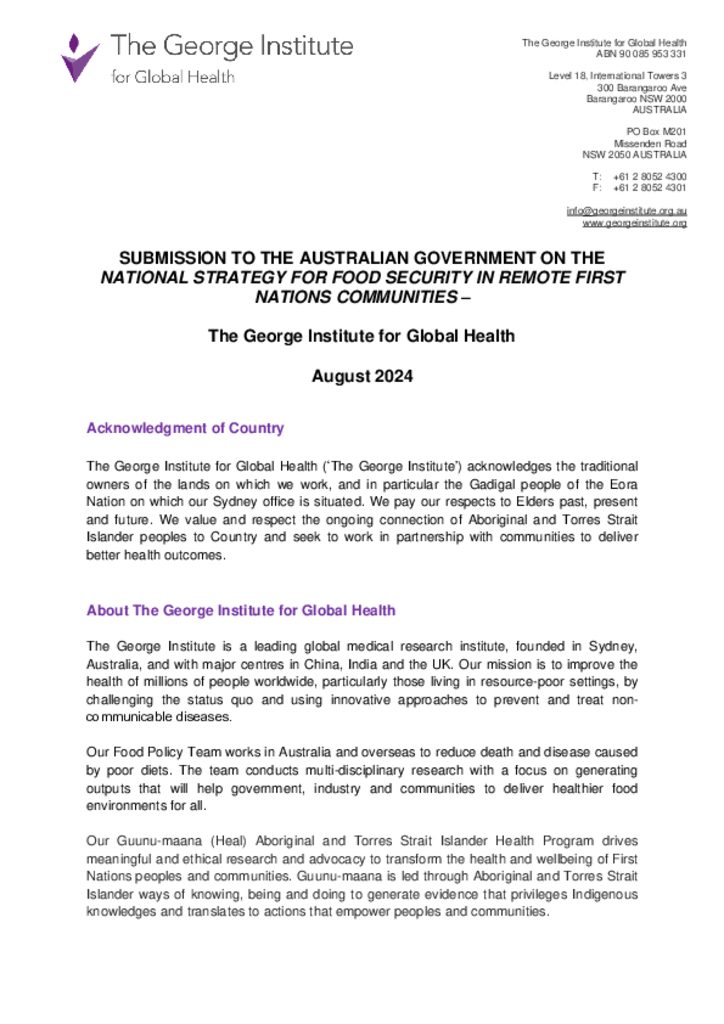
Submission to the National Strategy for Food Security in Remote First Nations Communities
The George Institute welcomes the opportunity to respond to the Australian Government's consultation on the National Strategy for Food Security in Remote First Nations Communities('The National Strategy'). We commend the Government for developing a National Strategy in response to Recommendation 10 of the 2020 House of Representatives Standing Committee on Indigenous Affairs Inquiry into food pricing and food security in remote Indigenous communities. In this submission we will draw on research we have conducted, or been involved in, that addresses the issues of food and water security in remote regional Australia.
Since 2019, The George Institute and a research team from the University of New South Wales (UNSW) have been working with the community of Walgett in New South Wales, as part of the unique Yuwaya Ngaari-li (YN) partnership with the Dharriwaa Elders Group (DEG)1. The partnership is collaborating on evidence-based research projects and building capacity to implement sustainable solutions to improve the health and well-being, and the social, built and physical environment of Aboriginal people in Walgett.
We draw on our own research and the work of this group in our submission to highlight the powerful relationships that Aboriginal and Torres Strait Islander peoples have to food and food systems through connection to Country. The work led by DEG and Walgett Aboriginal Medical Service (WAMS) in Walgett, NSW, shows the interconnectedness of water security and food security and priorities for successful community interventions to address these issues. Below we make recommendations that draw on a strengths-based approach to national food and water security reform, focused on the cultural determinants of health.
Recommendations
The George Institute recommends that the Australian Government:
- Embeds a strengths-based approach into the National Strategy, which recognises the cultural determinants of health, to understand the issues of nutrition and food and water security for Aboriginal and Torres Strait Islander peoples.
- Prioritises community involvement, in the development and implementation of the National Strategy, including shared planning, decision-making and evaluation by communities and governments.
- Integrates and addresses water security, including the health of the rivers, as an integral component of food security throughout the National Strategy.
- Adopts a systems approach to developing policy, recognising the links between food and water systems, the burden of non-communicable disease, climate change and equity; and establish multi-sectoral working groups at community level to bring together relevant stakeholders.
- Ensure adequate funding and resources are provided to ensure local Aboriginal Community Controlled Organisations can be effectively engaged in both long-term planning and short-term crisis responses to food and water security.
More detail is needed on how the National Strategy will be implemented. The National Strategy does not adequately address the role of the Australian Government in leading and coordinating the policy, and the responsibilities of States, Territories and Local Governments in implementing jurisdictional responsibilities. Further, The George Institute recommends that the National Strategy includes formal mechanisms for communities to identify food-security priorities and establishes authority for community decision-making to ensure government accountability, respect and reciprocity, transparency and responsiveness.





